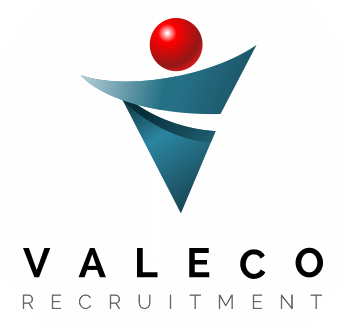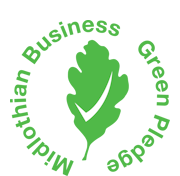Should You Send a Cover Letter in Today's Job Market?
For many years, the advice was unequivocal: always include a cover letter unless explicitly told not to. This sentiment still holds a lot of weight, but the landscape has evolved. While the core purpose of a cover letter – to make your application stand out and draw attention to your CV – remains, the how and when have become more nuanced in today's fast-paced, digitally driven job market.
A well-crafted cover letter is still your first chance to make a memorable impression. It's an opportunity to tell a compelling story that your CV, with its factual summary of experience and skills, can't fully convey. It allows you to demonstrate genuine interest, showcase your personality (within professional bounds), and directly connect your unique value proposition to the specific needs of the employer. CVs, especially with the prevalence of templates and online profiles, can often look quite similar. The cover letter, therefore, is an even more critical tool to differentiate yourself and make your application truly shine.
There's no rigid formula, but here are key considerations for writing a highly effective cover letter in today's job market:
1. Do Your Deep-Dive Research
This has always been important, but with the abundance of digital information, "doing your research" means going beyond the surface. Look at the company's website, recent press releases, and their "About Us" or "Careers" sections. Go deeper:
Social Media Presence: Analyze their official LinkedIn, X (formerly Twitter), and even Instagram accounts. What kind of content do they share? What values do they seem to prioritize?
Company News & Challenges: Use news aggregators and business publications to identify any recent achievements, expansions, challenges they're addressing, or industry trends impacting them. How would your skills directly contribute to navigating these?
Employee Insights: Explore LinkedIn profiles of current employees in similar roles. This can offer clues about the company culture, common skill sets, and career progression.
AI-Assisted Research (Ethically!): You can use AI tools to quickly summarize company information or identify key themes from their public presence. However, always verify this information and use it as a starting point, not a replacement for your own critical analysis.
This deep research allows you to tailor your tone and content, demonstrating a genuine, informed interest, and helping you decide if the company culture truly aligns with your aspirations.
2. Keep It Concise and Impactful
In a world of shrinking attention spans and high application volumes, brevity is paramount. A page of text is still the maximum – often, even less is better. Focus on quality over quantity. The cover letter's job isn't to repeat your CV; it's to pique their interest and encourage them to read your CV.
Think of it as an executive summary of your "why" and "how." Highlight 2-3 key accomplishments or skills that are most relevant to this specific role and company, and briefly explain their impact. The details belong in your CV.
3. Master the Art of Keyword Integration (Beyond Just Repetition)
The job description is your cheat sheet. It contains vital keywords that reflect what the hiring manager is looking for. However, simply repeating them verbatim can sound robotic.
Identify Core Competencies: Look beyond specific words to the underlying skills and responsibilities. If the job description emphasizes "stakeholder management," think about instances where you effectively managed diverse groups.
Integrate Naturally: Weave these keywords and concepts into your narratives about your accomplishments. For example, instead of just saying "I have excellent customer service skills," describe a situation where your "customer-centric approach" led to a measurable improvement in client satisfaction.
Applicant Tracking Systems (ATS): Many companies use ATS to filter applications. Incorporating relevant keywords is still crucial for getting past this initial hurdle. Your deep research in step 1 will help you understand the broader terminology used within that industry or company.
4. Craft a Magnetic Opening
The days of "I am writing to apply for the [Job Title] position advertised on [Platform]" are largely over. In today's competitive market, you need to grab attention immediately.
Lead with Impact: Start with a strong statement that highlights your most relevant qualification or an impressive accomplishment that directly aligns with the role's primary objective.
Express Genuine Enthusiasm: Why are you genuinely excited about this specific opportunity at this specific company? Connect your passion to their mission or recent achievements.
The "Hook": Think about what makes you uniquely suited. "With a proven track record in [key skill] and a passion for [industry/company mission], I was immediately drawn to your [specific project/value] and am confident I can contribute significantly to your team's success in [key area]."
Maintain Professionalism: While you want to stand out, avoid gimmicks, emojis, or overly informal language. Humor can be risky, as it doesn't always translate well in writing or across cultures.
5. Shift the Focus from "I" to "You" (the Employer)
This is a subtle but powerful change. Instead of constantly starting sentences with "I believe," "I have," or "I am," reframe them to focus on how your skills and experiences benefit the employer.
From "I did X" to "My ability to X will help you achieve Y."
Example: Instead of "I managed a team of five," try "My experience leading and motivating a team of five equipped me to drive [specific outcome] for your organization."
Impact-Oriented Language: Quantify your achievements whenever possible. Numbers and data speak volumes and demonstrate tangible value.
6. Embrace Your Strengths (and Combat Imposter Syndrome)
It's still okay – in fact, necessary – to talk about yourself! Imposter syndrome can be a real barrier. Remember, the cover letter is your marketing document.
Practice Articulating Your Value: Speak about your accomplishments out loud, perhaps even role-playing with a friend. This can help you find the right language and build confidence.
Focus on Solutions: Frame your experiences as solutions to problems the employer might face. "I solved X by doing Y, which resulted in Z."
Be Assertive, Not Arrogant: Confidence is attractive; arrogance is not. Focus on facts and measurable outcomes rather than subjective claims.
7. The Non-Negotiable: Flawless Proofreading
This point cannot be stressed enough, especially in an era where AI writing tools are prevalent. A single typo, grammatical error, or incorrect company name can instantly send your application to the "no" pile. It suggests a lack of attention to detail and professionalism.
Read Aloud: This helps you catch awkward phrasing and errors you might miss when reading silently.
Use Spell Checkers and Grammar Tools: Tools like Grammarly can be helpful, but don't rely on them exclusively.
Get a Second Pair of Eyes: Ask a trusted friend, colleague, or mentor to proofread your letter. They might spot errors you've overlooked.
Double-Check All Specifics: Company name, job title, names of individuals, and any specific details you've referenced from their website.
In Conclusion: The Evolving Role of the Cover Letter
While some roles or industries (particularly highly technical ones) might prioritize a concise application directly through a platform, for most professional positions, a targeted, compelling cover letter remains a powerful differentiator. It shows initiative, genuine interest, and allows you to tell a story that your CV alone cannot.
The updated advice: Always consider sending a cover letter that is highly personalized, concise, and impactful, focusing on the value you bring to that specific employer and role. If the application system actively discourages or doesn't allow one, then respect that. But when in doubt, invest the time to craft a stellar letter – it could be the key to opening the door to your next career opportunity.



